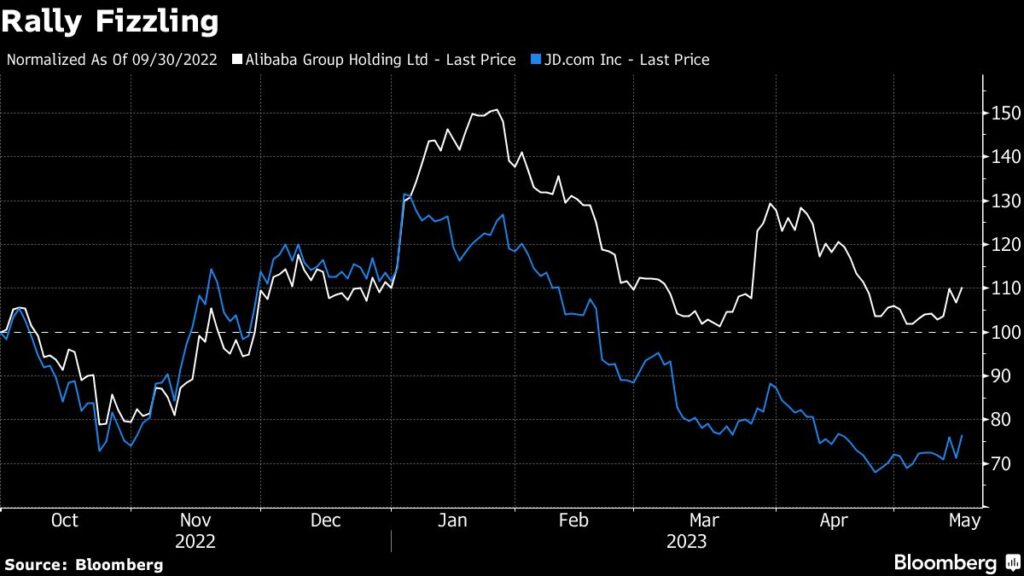(Bloomberg) — Michael Burry, the money manager made famous in The Big Short, now has a Big Long when it comes to China. He boosted his bullish bets on e-commerce giants JD.com Inc. and Alibaba Group Holding Ltd. big time, even as other hedge funds cooled on the nation’s reopening trades.
Most Read from Bloomberg
The two stocks have become the largest holdings of his Scion Asset Management, accounting for 20% of his stock portfolio. His success relies not only on the companies recovering their mojo but also surviving the geopolitical risks that drove many of his peers away.
Burry, who rose to fame after predicting the 2008 housing crash, made headlines Monday after revealing in a 13F filing that he scooped up regional lenders during the banking turmoil in the first quarter.
READ MORE: Michael Burry Loaded Up on Bank Stocks in Tumultuous Quarter (1)
That wasn’t his only contrarian bet. After purchasing Alibaba and JD.com in the final months of 2022 as China ended the Covid Zero policy, Burry boosted the holdings of the two last quarter. His stake in JD.com more than tripled to 250,000 shares, worth $11 million, or 11% of his portfolio. He also doubled holdings of Alibaba to $10 million.
The vote of confidence came as many of his peers offloaded the stocks. As a group, hedge funds sold 4 million shares of JD.com, according to 13F filings. The reduction of $451 million, which includes the valuation change of the stock during the quarter, marked one of the largest declines among US-listed companies.
Alibaba’s shares rose as much as 1.6% in Hong Kong on Tuesday, while JD.com jumped 4.7%. The moves track a Monday rally in the Nasdaq Golden Dragon China Index as Alibaba’s promise of “huge” investments in its Taobao shopping app and the US securities regulator clearing its fiscal 2022 report also supported sentiment.
In general, though, the so-called reopening trades have been disappointing. The MSCI China Index is flat for the year as the economy shows signs of losing momentum. China’s consumer spending and industrial activity grew at a slower pace than expected in April, data showed Tuesday, underscoring the recovery’s weakness.
Hedge funds’ net exposure to China has dropped to 10.5% from 13.3% in January, according to data from Goldman Sachs Group Inc.’s Prime Services unit.
JD and Alibaba haven’t been performing well since their reopening rally faltered at the end of January. JD’s US-listed shares have lost 32% this year, while Alibaba is little changed, even as it carried out an historic overhaul. Last week, JD reported the lowest-ever pace of revenue growth.
Earnings estimates for the Hang Seng Tech Index have been slashed to near record lows as fierce competitions in the e-commerce sector pressured margins. Alibaba’s first-quarter results are scheduled on Thursday, with analysts estimating a sub-3% increase in sales. These are a far cry from the go-go days before the pandemic and Beijing’s 2021 clampdown on Big Tech.
Burry made his name as a contrarian, and that hasn’t changed. In this case, he’s betting that the fears about China Inc. are overdone.
–With assistance from Amy Li, Yiqin Shen and Jeanny Yu.
(Updates with latest share price moves, more details.)
Most Read from Bloomberg Businessweek
©2023 Bloomberg L.P.


